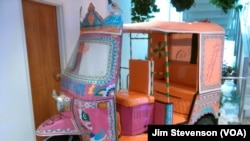
There are no guarantees in life, so everything is a gamble
I read the other day about a Chinese billionaire who wants to bring horse racing to China. That fact seems a bit odd to me since people have been riding horses in the region for thousands of years. But because of history and politics over the past century, horse racing fell out of favor.
Although gambling is popular in Asia and the Western model of the industry is built on wagering, the scale of it is frowned on by a government seeking at least on the surface to be crusading against corruption. Still, the excitement of the sport is not lost in China and for now, fans look vicariously to the west and the United States in particular.
U.S. horse racing has not seen a Triple Crown winner – a Thoroughbred racehorse placing first in the Kentucky Derby, Preakness and Belmont – since Affirmed in 1978. It’s the longest drought since Sir Barton claimed the first Triple Crown in 1919. Only 11 have ever won the Triple Crown.
Several horses have come close, but failed to emerge the winner at New York’s 1½ mile Belmont Stakes, the longest of the three races. I grew up in an area of Maryland that had been prime horse territory for many years before land prices soared and development wiped out the rolling farmlands. As a teenager I watched three incredible horses capture the Triple Crown within the span of five years - Affirmed, Seattle Slew and perhaps the greatest ever, Secretariat. It seemed an exciting but common occurrence.
As of this year, 13 horses since Affirmed have had the opportunity. Four placed second at the Belmont while another four were third. By 2003, I felt the time was due and asked my editor to send me to the Belmont to cover Funny Cide, a horse that convincingly won the Preakness by nearly 10 lengths on a cold, damp track and seemed a sure bet. It rained in New York as well. All day. The track was a mud bog with standing water. Funny Cide placed third behind two fresh horses that had not run in the Preakness.
Again in 2008, I smelled a winner in Big Brown. The horse claimed both the Kentucky Derby and Preakness by about five lengths each. What could go wrong? I asked my editor to send me to the Belmont. I had one of the best vantage points in the grandstand for the finish as I watched Big Brown’s jockey stop the horse as he entered the final stretch. Later it was revealed one of his shoes had become dislodged.
With these experiences and learning through the years that a Triple Crown is not only elusive, but rare, I set off for New York this year to watch California Chrome. Shining brightly in the first two races, Chrome garnered no gold, silver or bronze. A fourth place finish meant no Triple Crown. Again.
There are no guarantees I will ever witness in person this amazing drought end. But the memories of making the effort to travel, experiencing the personal events along the way, and sharing the emotional anticipation and losses with more than 100,000 spectators was well worth it. So take heart Chinese horse racing fans, your drought may one day end as well, and regardless how your favorite horses finish, may you always have a good day at the track.






